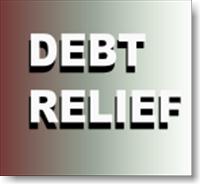|
Digital News Report – You have been buried with so much debt you can’t pay it back on the salary that you make. Before you go down the road of bankruptcy, you might want to investigate what debt relief programs can do to help reduce the financial burden.
What does a Debt Relief Program Do?
Debt relief programs can also be sometimes called debt negotiation programs. The organizations and companies help to to lower your unsecured debt by anywhere from 10 to 50 percent of the amount owed. Each state has different rules that the debt relief programs must follow in order for you to get credit card debt forgiveness.
The bad part of going through a debt negotiation to achieve a forgiveness of debt, is that it can have a long term impact on your credit score and can make it difficult to get credit for a long time afterward. So if you haven’t sought out credit counseling, you should carefully weigh out all of your options before making any financial decisions.
The FTC warns consumers of debt negotiators that are “nonprofit” being legitimate and that you should know that if you stop paying your credit cards, late fees and interest will add to the debt owed. They say that even though the company claims that it will be able to reduce the amount owed, there is no guarantee that the credit card company will be willing to agree to the lower amount do. Meanwhile, while the debt negotiation is going on, you continue to accrue more penalties and interest, which can greatly increase the amount you owe. The FTC says that you should know what the fees are involved with using the debt negotiation services in advance, which can be substantial.
The credit card company could end up suing you for the money that you owe if you stop making payments, and if they win, you could have your wages garnished or a lien filed against your home. If you are successful with the debt relief program, the IRS will consider the amount of debt forgiveness as taxable income.
Debt forgiveness of your credit cards, may not be the perfect fit for everyone. That is why you should always consider other options as such as credit counseling services, debt consolidation, and even bankruptcy in some cases.
To find out if a Debt Relief Program is operating according to the states rules you can contact your state’s Attorney General to see if the company has a license to work in your state. You can also contact the Better Business Bureau to see if they have received complaints about the company.
By: Victoria Brown

